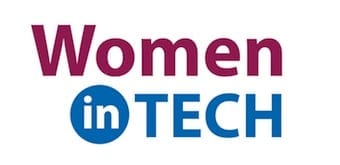 Staten Island businessman Anthony Onesto is trying to use the power of animation to get more young girls interested in science. The “tech guru” is trying to raise $25,000 to produce the pilot episode of Ella the Engineer, which is specifically geared to get more young girls interested in science and engineering.
Staten Island businessman Anthony Onesto is trying to use the power of animation to get more young girls interested in science. The “tech guru” is trying to raise $25,000 to produce the pilot episode of Ella the Engineer, which is specifically geared to get more young girls interested in science and engineering.
Ella is a female hero who solves problems using engineering and software. Think of her as a Bob the Builder for the information age.
“There’s never anyone with a computer science or software engineering background that was solving everyday problems,” Onesto said. “Given that most everyday objects now are either connected to the Internet or run by software, it seemed like the perfect time for this.”
“Imagine you give a young girl an opportunity that had not been presented to her before,” Onesto writes on his website. “A path to a career that is both rewarding and successful.”
It’s obviously too early in the game to know if Ella the Engineer can deliver the goods on any level, he’s raised less than $1000 so far. But it’s hard to argue with the need for that type of creativity. Not only that, Onesto is definitely right about the timing. It would be hard to argue that the U.S. is doing its best to get girls interested in science and engineering.
In fact, a test given in 65 developed countries by the Organization for Economic Cooperation and Development found that among a representative sample of 15 year-olds around the world, girls generally outperformed boys in science. That is, everywhere but in the U.S.
“We see that very early in childhood — around age 4 — gender roles in occupations appear to be formed,” said Christianne Corbett, co-author of the 2010 report “Why So Few? Women in Science, Technology, Engineering and Math.” “Women are less likely to go into science careers, although they are clearly capable of succeeding.”
That’s not to say the U.S. is giving up. There are several nonprofits dedicated to fixing what they see as a “national education crisis.”
There will be about one million more U.S. jobs in the tech sector over the next 10 years than there are computer science graduates to fill them. It’s estimated that only about 10 percent of K-12 schools even teach computer science.
Kodable is one ed-tech startup trying to get more kids on board the tech train. The company wants to teach kids five years old and younger the fundamentals of programming through interactive video games.
“As soon as you can start learning [coding] you should, because the earlier you start learning something, the better you’ll be at it later in life,” says Grechen Huebner, the co-founder of Kodable.
In an industry where only 28% of the labor force is female, it’s obvious we need to do something different with the current generation of younglings. America can only continue to be exceptional by producing exceptional Americans.
• • •
The ever-evolving technology industry has been traditionally populated by males. And while women comprise 51 percent of the workforce, they only make up 26 percent of tech professionals. This lack of diversity limits the potential for innovation in this exciting and important field. OWC’s Women in Tech articles featured on the OWC Blog aim to examine what can be done to attract more women to the industry by highlighting prominent tech professionals, current events, and other relevant stories from within the tech sector. To gain new insight, it is imperative that we tap into the female working population. This progress can be made not only spreading the word and promoting the Science, Technology, Engineering, and Math (or STEM) fields from an early age to encourage interest and pursuit, but also by demonstrating that tech companies require alternative skill sets such as marketing, design and writing as well. We hope that you will share this series and help us advocate the complete utilization of this important resource.










